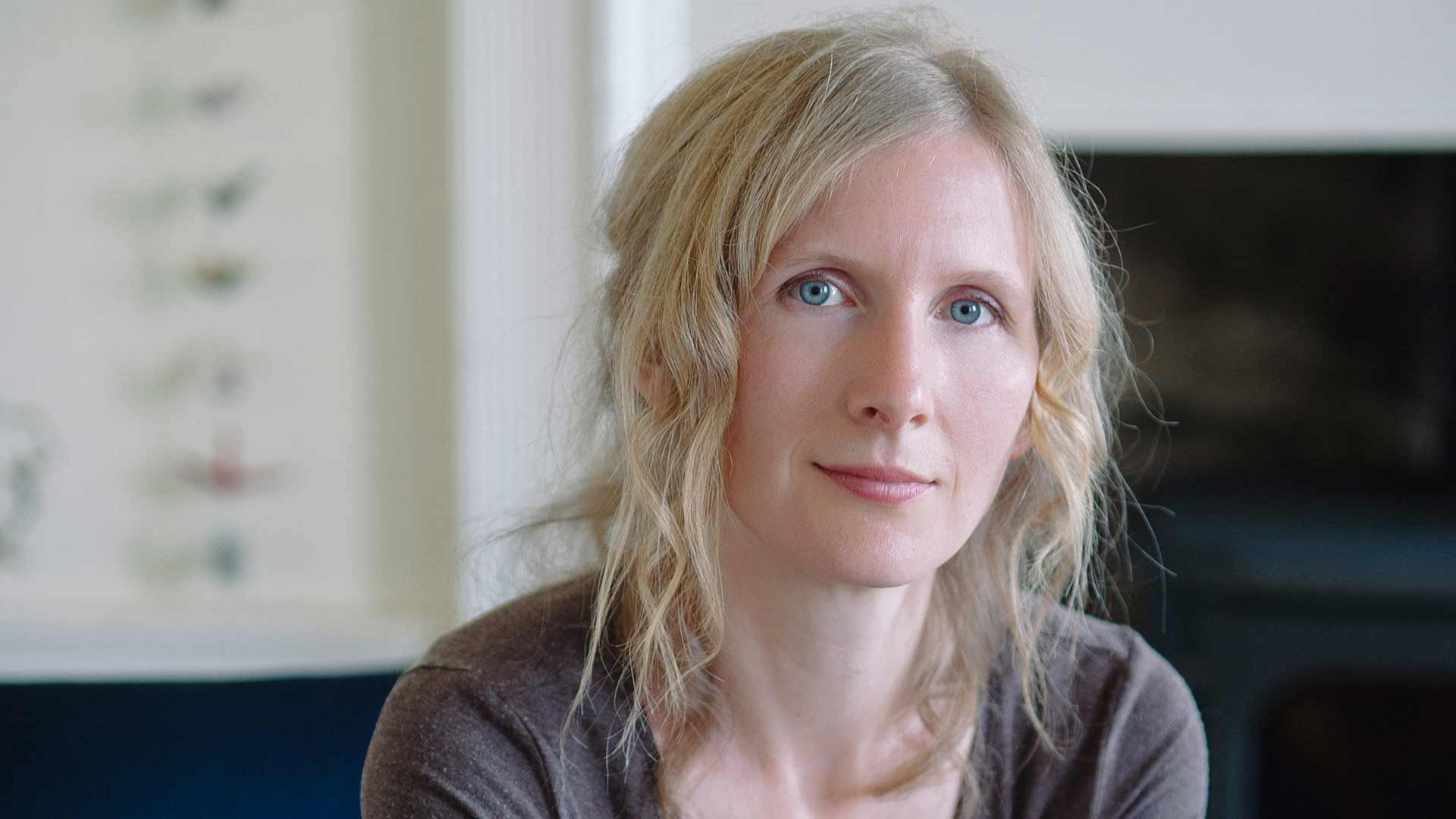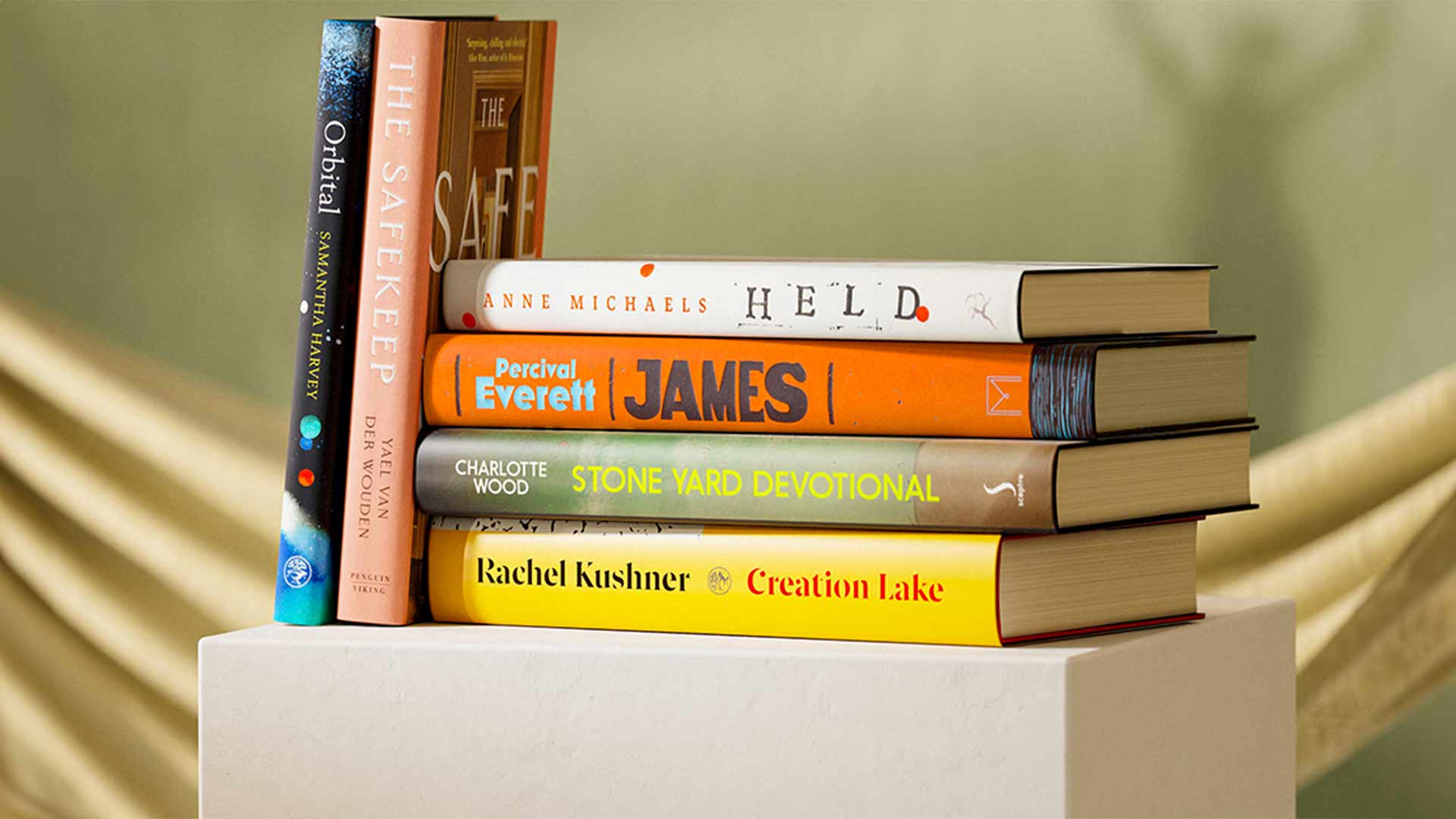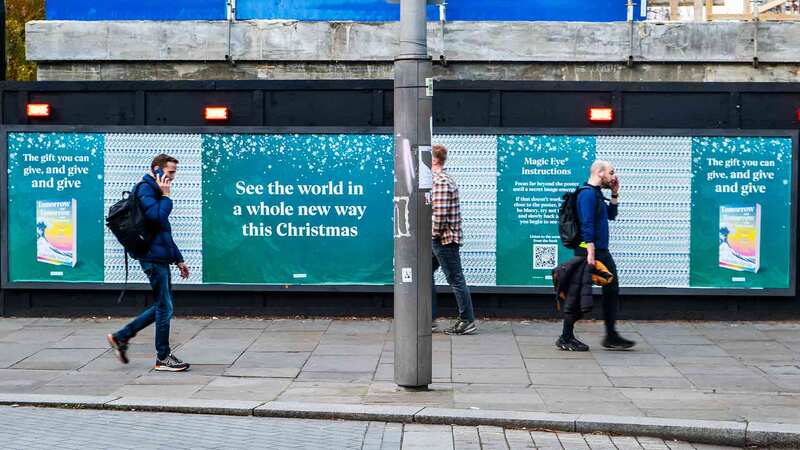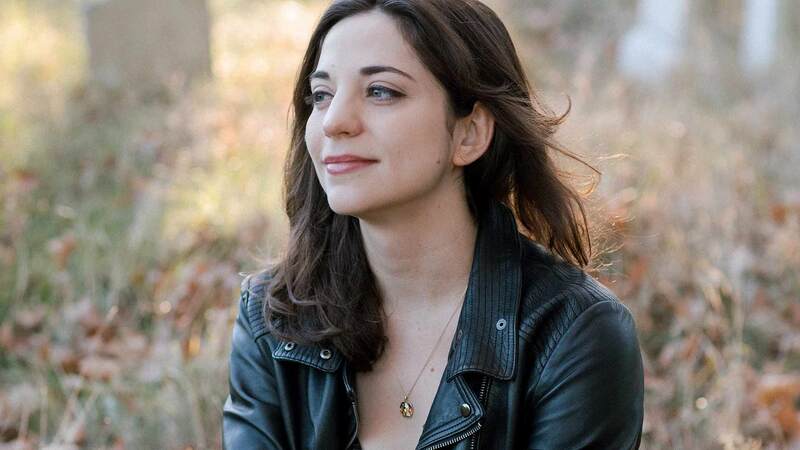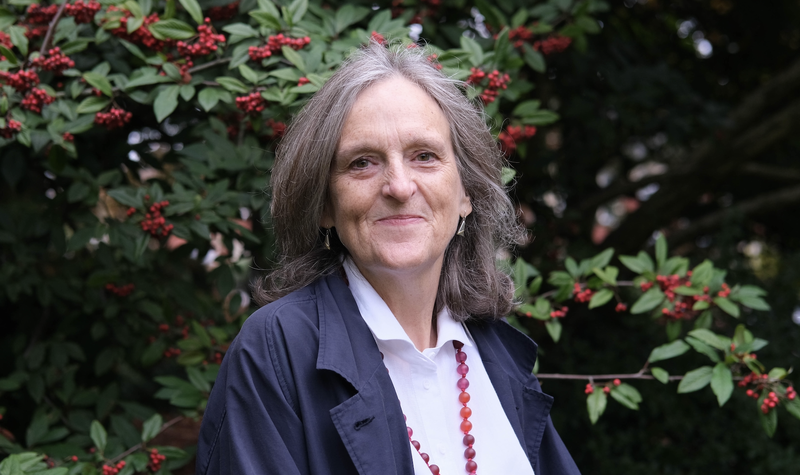You are viewing your 1 free article this month. Login to read more articles.
Booker Prize winner Samantha Harvey nearly 'lost her nerve' when writing Orbital
Booker Prize-winning author Samantha Harvey has revealed how she nearly "lost her nerve" when writing her novel Orbital, over fears no-one would want a read a book by "a woman who had never been to space".
The space-set novel won the £50,000 award on Tuesday evening (12th November), 15 years after the author was first longlisted. She is the first woman to win in five years and the 136-page book is the second shortest book to take the prize in 45 years. The win has been widely celebrated by the trade, shifting the biggest number of any of the shortlist with 29,000 copies sold this year. The publisher has pledged a reprint of 100,000.
Harvey described the win as “very unusual, exhilarating and very shocking”. She told The Bookseller: “I was totally shocked by result, overwhelming—but am delighted... I haven’t slept very much, I got to bed at 2am and was too tired, and then had to get up at 7am anyway.”
While the Kent-born author believes she would be a “hopeless astronaut—I would be travel sick, terribly anxious, I’d probably have a panic attack,” she enjoyed poring over books by astronauts, and describes how “you could spend your whole life on the NASA website”.
Harvey wrote Orbital between lockdowns when she became fascinated with setting a domestic novel in space—though she almost gave up on the project early on. “I felt that it wouldn’t be interesting to people as a woman who’d never been to space and that it was a ridiculous, absurd project, so I lost my nerve. There are so many books by authors who write about space beautifully and prolifically, I thought it’s absurd for me to try. So that’s why I gave up on this book early on. But I did come back and read a little back and realised it was alive to me, I just had to have conviction and do it well enough.”
She described how her career might be different if she was starting out today: "Sometimes I think about how my first novel was written from the point of view of a man getting dementia and, in that time, we have become a lot more interested in true stories, and there’s a lot of talk about cultural appropriation and the making of art. Would I be so confident in writing the point of view of someone with dementia [in The Wilderness]? I don’t know.”
This is partly what nearly caused Harvey to give up on Orbital. “Things have changed so much, and I think that’s partly why I was so nervous about writing about astronauts, because I am so unconstitutionally not an astronaut and knowing this age of voracity and authenticity and truthfulness, and where the project of making things up is sometimes regarded with suspicion. I think my career inevitably would have been different because times are different and we are all sensitive to the time we’re writing it.”
On the brevity of the book, the writer revealed it was originally longer before she decided on a timeframe of 24 hours. “I went through a few iterations, so it wasn’t always set in one day, it was originally longer, it wasn’t working... I needed to restructure it and use the structure to say something about time, how it’s completely upended in space.”
“Once I’d decided on that, its length and size was an inevitable consequence—because it’s one day, it needed to be short and be compressed and I needed to use the compression of the book as a counterpoint to the immensity of the scale of some of the themes.”
On working with her long-time publisher Jonathan Cape, Harvey said: “I have been with Cape for the whole of my writing life here in the UK, which I’m incredibly grateful and glad of because it’s easy for publishers to ditch their authors when they’re not making them money and it’s a rare publisher which is loyal to their author and hopes one day they will come good. Cape certainly have done that with me.”
She revealed there was “no pushback” on the original idea, though conceded “I’m sure they felt that Orbital wasn’t going to be an easy sell, I think everyone’s been quite surprised... I don’t think anyone saw [the Booker] coming”. Harvey added: “They’ve always been quite supportive of my creative whims.”
On her career so far, she described it as “slow, steady. I’ve always been used to being someone on the periphery,” adding: "A decade ago Gaby Wood wrote a piece in the Telegraph about how my shtick was being ‘unknown’ or ‘unappreciated’ and that has been my thing I suppose... but it has been a very blessed career and even before yesterday [12th November] I would have said the same."
Harvey does not own a mobile phone, though she believes that is still compatible for the concept of Orbital. “I can see it looks strange having written a book which is partly about the biggest tech feat man has ever made and myself not having a mobile phone, but I think there’s a compatibility there because, to me, not having a mobile phone is about being free of things,” she added. “I want peace and freedom. I think that is so much the impulse of this book for me, I wanted to escape the complexity of life on earth and look at it from a different angle.”
While she will spend some of the prize money revisiting Japan where she used to live, and where she will be “following the Cherry Blossom for a month”, there is also another novel on the go. “The only thing I can really say... That I can really remember about it, is that it’s a love story,” she said.
The trade has applauded the Booker judges’ choice. Marie Moser, owner of the Edinburgh Bookshop, told The Bookseller: “Orbital was obviously a well-deserved winner and from a bookselling point of view will continue to be an excellent seller as, at 136 pages, it is not intimidating to a reader who wants to dip into the Booker oeuvre, and as a paperback it is a very acceptable price to take a punt on. That it is both beautifully written and timely is simply the icing on the cake.”
Co-owner of Drakes—the Bookshop Mel Greenwood told The Bookseller: “I am so chuffed that Orbital was the overall winner—I’ve been championing this beautiful little book since it came out. It was my book of the year last year and as soon as it came into paperback I chose it for our book club read.
“It’s really refreshing to have a winner that the indies could really get behind. Both in trade paperback and paperback indies it sold almost half of all sales (outdoing both Waterstones and Amazon) this is really powerful stuff for us small bookshops when we so often feel marginalised by the big players.
“The strength of Orbital is in its perfectly pitched writing. It’s a really accessible read with a simple structure—but it packs a massive punch. There is so much to unpack as the layers reveal the complexity of the human condition, isolation, fragility, love, loss and grief against the backdrop of the beauty and fragility of Earth. I think the might of this little book and the might of the little indie made the perfect match.”
Bea Carvalho, Waterstones head of books, said: “We are absolutely delighted that Samantha Harvey’s exquisitely beautiful Orbital has won the Booker Prize. This year’s shortlist has been especially strong for bookshops, with sales through Waterstones up over 200% year on year against last year’s six titles. Sales of Orbital represented over a third of our sales of the shortlist since its announcement, so from the truly brilliant and commercial shortlist this winner is a bookseller’s dream."





